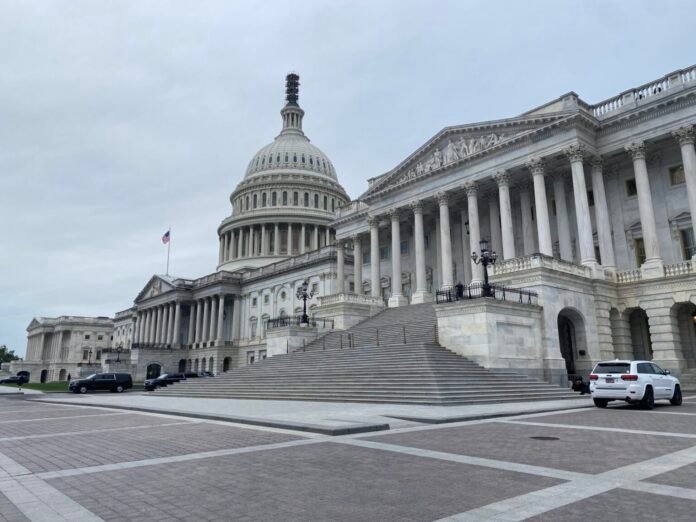Congress narrowly avoided a government shutdown on Friday after the Senate approved a stopgap funding bill just hours before the deadline. The measure, which had already passed the House, now heads to President Donald Trump’s desk for final approval.
The bill’s passage has exposed deep divisions within the Democratic Party, particularly over Senate Minority Leader Chuck Schumer’s decision to support the legislation. Schumer, along with nine other Democrats, helped clear the way for the bill in a key procedural vote, despite mounting pressure from within his party to block it.
The funding measure ensures government operations continue into the fall, preventing disruptions across federal agencies. However, many Democrats viewed it as a concession to Trump and Republican leadership, accusing Schumer of failing to use the party’s leverage to fight back against spending cuts that could impact veterans’ healthcare, Washington, DC, services, and other programs.
Schumer defended his decision, arguing that shutting down the government would have handed Trump even more power.
“This is a Hobson’s choice,” Schumer said. “The CR is a bad bill, but allowing Donald Trump to take even much more power via a government shutdown is a far worse option.”
Despite Schumer’s reasoning, frustration boiled over among Democratic lawmakers and voters, many of whom had urged their leaders to take a harder stance. Prominent progressives, including Rep. Alexandria Ocasio-Cortez, had called on Senate Democrats to reject the bill and challenge Trump’s approach to governing.
The final Senate vote was 54-46, with all but two Democrats—Jeanne Shaheen of New Hampshire and Angus King of Maine—opposing the bill. Among Republicans, Sen. Rand Paul of Kentucky was the lone dissenter.
Trump, who had backed the bill, publicly praised Schumer for his role in its passage.
“I appreciate Senator Schumer, and I think he did the right thing, really. I’m very impressed by that,” Trump told reporters following the vote.
The bipartisan nature of the decision, however, has sparked backlash from within Schumer’s own party, with some Democrats accusing him of surrendering in what could have been a critical battle against the Trump administration’s fiscal policies.
Shortly after passing the stopgap bill, the Senate also approved a separate measure aimed at preserving Washington, DC’s budget autonomy. Democrats had warned that the GOP-backed funding bill would slash $1.1 billion from the city’s budget, prompting concerns over essential services. The House must now vote on the measure, though its chances of passage remain uncertain.
As Democrats grapple with the political fallout of Schumer’s move, attention will now turn to the next funding battle in the fall—where the party may face an even tougher test against Trump’s economic policies and Republican budget priorities.
For more political updates, visit DC Brief.


